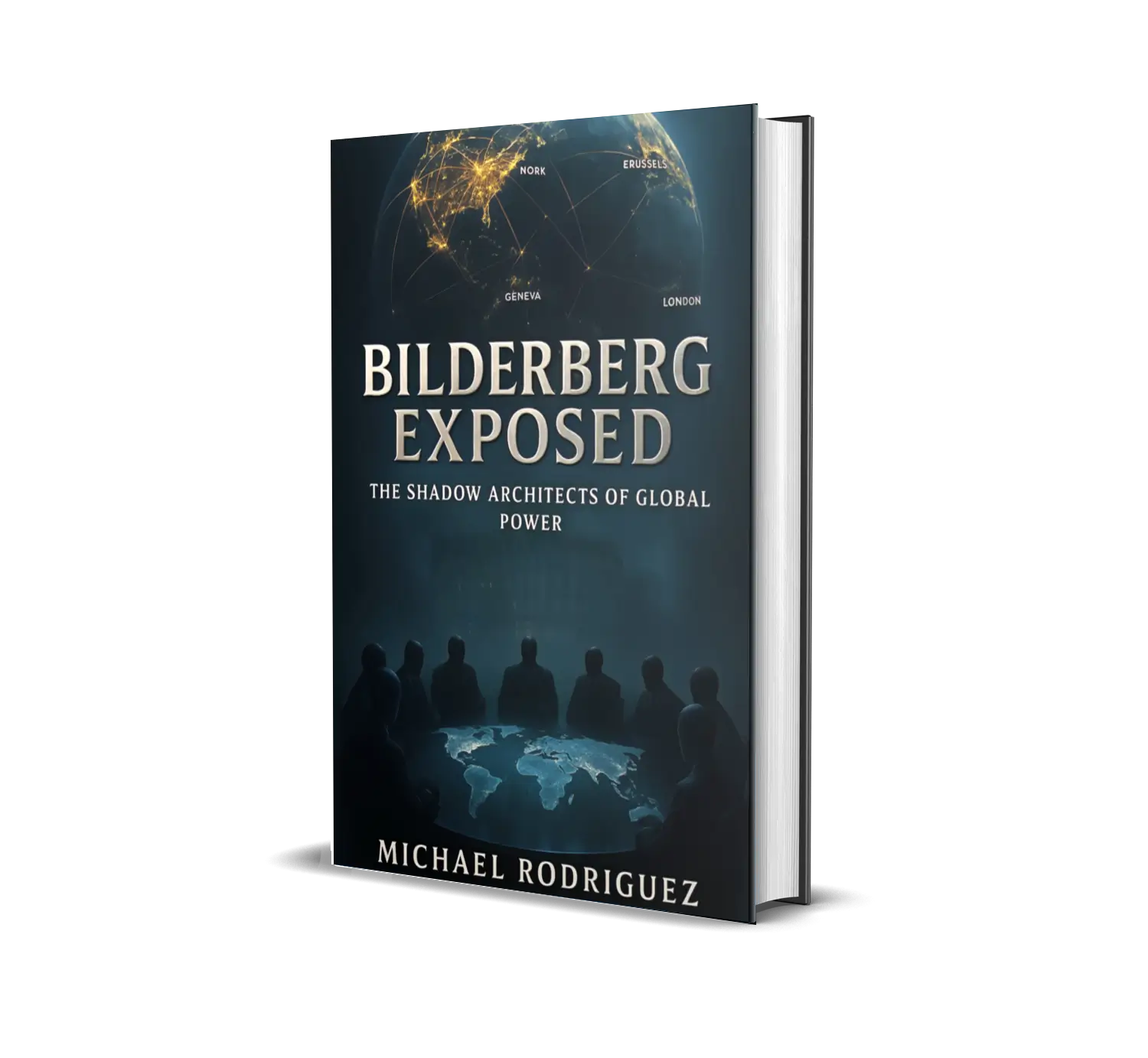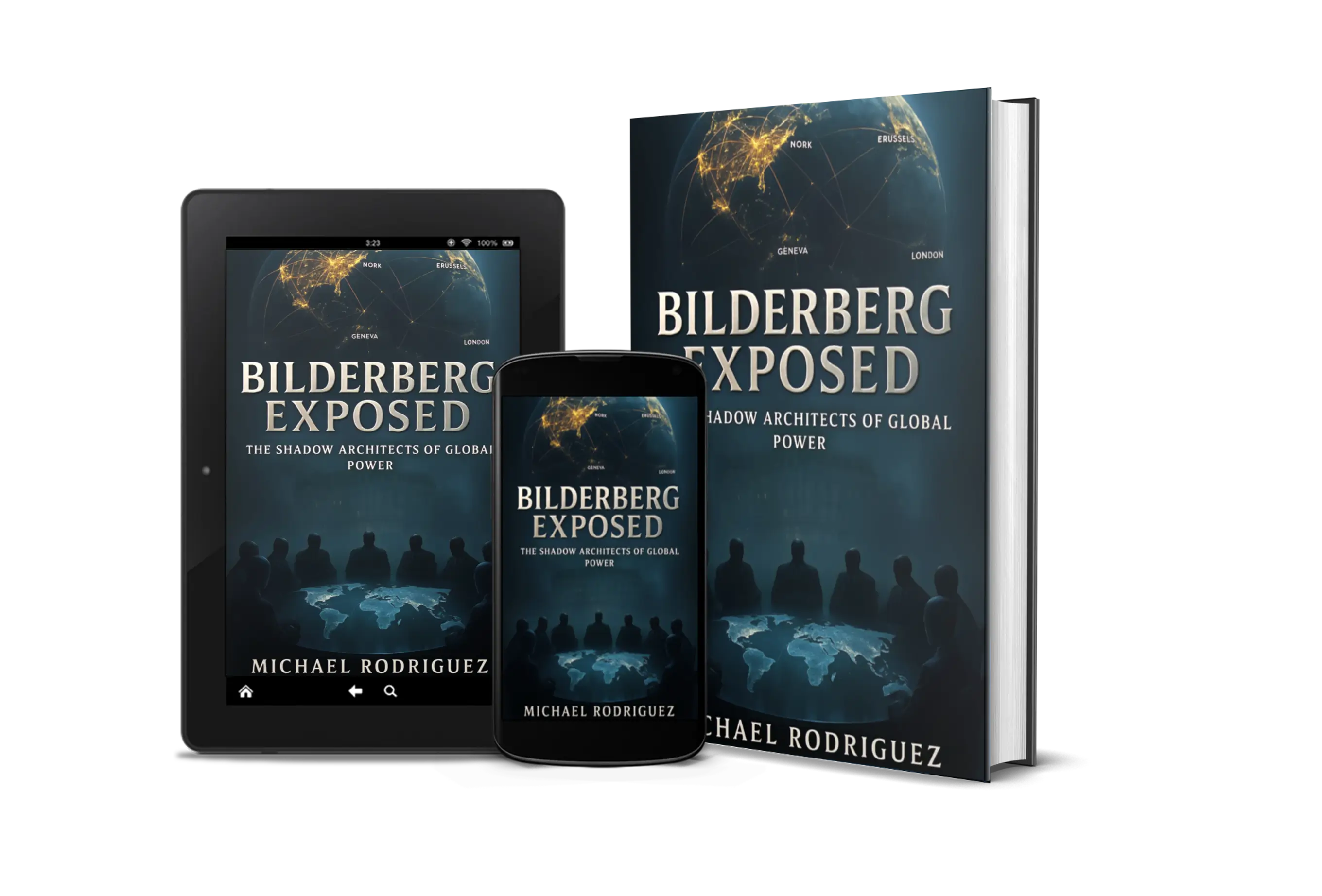Bilderberg Group FAQ: The 12 Most Asked Questions About The World's Most Secretive Elite Meeting
Published on June 18, 2025

In 1976, for the first time in its 22-year history, the world's most secretive annual gathering of power brokers was abruptly canceled. Hotel reservations dismissed, private jets grounded, security arrangements abandoned. The reason? Their royal chairman, Prince Bernhard of the Netherlands, had been caught accepting over a million dollars in corporate bribes from Lockheed Corporation, threatening to expose an entire shadow network that had been quietly shaping world events since 1954. Rather than dissolving into historical obscurity, this crisis became the moment when the Bilderberg Group evolved from a Cold War coordination forum into perhaps the most sophisticated informal governance mechanism of the modern era. Despite operating entirely outside democratic oversight, this organization has influenced policies affecting billions of lives—from European integration to pandemic responses, from financial crises to digital platform regulations. As my comprehensive investigation reveals in Bilderberg Exposed: The Shadow Architects of Global Power, understanding this organization isn't about embracing conspiracy theories—it's about recognizing how real power operates in our interconnected world.
Q1: What Exactly Is the Bilderberg Group?
The Official Answer: According to their website, the Bilderberg Group is "an annual off-the-record forum established in 1954 to foster dialogue between Europe and North America."
The Complete Reality: The Bilderberg Group represents the most significant informal coordination mechanism in modern global governance. Founded by Prince Bernhard of the Netherlands and Polish émigré Joseph Retinger, it emerged from a revolutionary recognition: traditional diplomacy was inadequate for the atomic age's complexities.
Unlike other international organizations, Bilderberg operates through what I call "consensus architecture"—participants don't make binding decisions, but they develop shared frameworks for understanding problems and approaches to solving them. These frameworks then emerge, months or years later, as remarkably similar policies across different countries and institutions.
- Annual Meetings: 150 of the world's most influential leaders gather for three days of private discussions
- No Official Decisions: No votes are taken, no resolutions passed, no communiques issued
- Chatham House Rules: Information can be used, but sources cannot be revealed
- Invitation Only: Participation is controlled by a steering committee representing 18 nations
Q2: Is This a Real Organization or Just a Conspiracy Theory?
The Truth: The Bilderberg Group is absolutely real and has been documented extensively since 1954. They maintain an official website, publish participant lists, and their meetings are reported in mainstream media.
Why the Confusion Exists: The organization's deliberate secrecy created an information vacuum that conspiracy theorists filled with speculation. For decades, questioning Bilderberg's influence was dismissed as "conspiracy theory," which served the Group's interests perfectly.
What Makes It Different: Unlike fictional secret societies, Bilderberg operates in plain sight while maintaining operational secrecy. Their power comes not from hidden plots but from legitimate influence exercised through informal coordination.
"To say we were striving for a one-world government is exaggerated, but not wholly unfair." —Denis Healey, Bilderberg founder and steering committee member for 30 years
Q3: Who Actually Attends These Meetings?
The Composition: Approximately 150 participants annually, carefully selected to include:
- Political Leaders: Prime ministers, presidents, cabinet ministers (about one-third)
- Corporate Executives: CEOs of major multinational corporations
- Financial Sector: Central bank governors, investment bank heads, hedge fund managers
- Technology Industry: Leaders of Google, Facebook, Amazon, Apple, Microsoft
- Academic Experts: Economists, political scientists, strategic analysts
- Media Figures: Publishers, editors, and influential journalists
The Geographic Split: Two-thirds European, one-third North American, with occasional participants from other regions
Notable Pattern: Many participants later assume leadership positions in major international institutions. Every European Central Bank president has attended Bilderberg meetings before their appointment.
Q4: What Do They Actually Discuss at These Meetings?
Official Topics: The Group publishes general discussion topics, which in recent years have included:
- Artificial Intelligence and the Future of Work
- Climate Change and Sustainability
- China's Economic Rise
- The Future of Capitalism
- Post-Pandemic Health Architecture
- Russia and the Future of Global Order
- Geopolitical Realignments
The Deeper Agenda: Based on my research into previously classified documents, the discussions focus on managing what participants see as systemic challenges to Western-dominated global order. The conversations aren't about implementing specific policies but about developing shared understanding of how to address these challenges.
The Process: Sessions operate like high-level seminar discussions where participants can speak freely without public accountability. This format allows for genuine dialogue about sensitive topics that would be impossible in official diplomatic settings.
Q5: Why Is Everything So Secretive?
The Official Justification: Privacy encourages "candid debate" and allows participants to speak without being bound by their official positions.
The Practical Reality: Secrecy serves multiple functions:
- Reduces Democratic Accountability: Participants can discuss controversial policies without facing voter backlash
- Enables Policy Coordination: Informal agreement-building that would be impossible in public forums
- Protects Commercial Interests: Business leaders can discuss market strategies without disclosure requirements
- Maintains Plausible Deniability: Policies can emerge "spontaneously" rather than through coordinated planning
Historical Context: The secrecy model was developed during the Cold War when informal coordination between Western allies required protection from Soviet intelligence. The practice continued because it proved extremely effective for policy coordination.
Q6: Do They Really Control World Governments?
The Nuanced Answer: They don't "control" governments in the sense of issuing orders, but they absolutely influence government policy through sophisticated coordination mechanisms.
How It Actually Works:
- Consensus Building: Participants develop shared understanding of policy directions
- Network Effects: Attendees return to their roles with aligned perspectives on major issues
- Policy Templates: Similar policies emerge across different countries with remarkable synchronization
- Career Advancement: Participation often precedes appointment to major international positions
Concrete Examples: European integration, NATO expansion strategies, financial crisis responses, and pandemic policies all show patterns of coordination that trace back to Bilderberg discussions.
Q7: Are They Creating a "New World Order"?
The Direct Answer: Yes, but not in the way conspiracy theorists imagine. They're not imposing authoritarian global government but coordinating policies to maintain and extend Western-dominated international institutions.
What They Actually Promote:
- Free-market capitalism with minimal democratic interference
- Supranational institutions that bypass national sovereignty
- Technology-mediated governance systems
- Elite expertise over popular democracy in complex policy areas
The Long-term Vision: Participants genuinely believe they're creating a more rational, peaceful, and prosperous world order. The question is whether this vision serves broader human interests or primarily elite convenience.
Q8: Do They Really Pick World Leaders?
The Pattern is Clear: While they don't formally "pick" leaders, there's an unmistakable correlation between Bilderberg attendance and subsequent appointment to major positions.
Notable Examples:
- Bill Clinton: Attended in 1991, became President in 1993
- Tony Blair: Attended in 1993, became Prime Minister in 1997
- Ursula von der Leyen: Attended four meetings before becoming European Commission President
- Emmanuel Macron: Attended before his meteoric rise to French presidency
How It Works: Bilderberg serves as a "finishing school" for future leaders, where they demonstrate their alignment with transnational elite perspectives and build relationships with existing power networks.
Q9: What Is the "Chatham House Rule" and Why Does It Matter?
The Rule: "Participants are free to use the information received, but neither the identity nor the affiliation of the speaker(s) nor of any other participant may be revealed."
Why It's Crucial: This rule creates a unique dynamic where:
- Participants can float controversial ideas without public attribution
- Information spreads through elite networks without visible coordination
- Policies can be tested and refined before public announcement
- Democratic accountability is effectively eliminated
The Long-term Effect: Over decades, this rule has created what amounts to a shared elite consciousness that transcends national boundaries and institutional affiliations.
Q10: How Much Real Power Do They Actually Have?
Enormous, But Indirect: Their power lies not in formal authority but in their ability to coordinate the decisions of people who do have formal authority.
Measurable Influence:
- European integration proceeded according to frameworks developed in early Bilderberg meetings
- NATO strategic doctrine was formulated by Henry Kissinger at the 1955 meeting
- Financial crisis responses showed remarkable coordination across different countries
- Pandemic policies emerged simultaneously across Western nations
Power Assessment: When the same people who discussed pandemic preparedness for years at Bilderberg meetings become the ones managing pandemic responses, the line between prediction and planning becomes very thin.
Q11: Which Conspiracy Theories Are Actually True?
True Elements:
- They do coordinate major policy directions among Western elites
- They do discuss economic policies that affect millions without democratic input
- They do influence who gets appointed to major international positions
- They do operate as an informal global governance mechanism
False or Exaggerated Claims:
- They're not a single unified conspiracy with a master plan
- They don't control every world event or government decision
- They're not implementing a totalitarian world government
- They're not connected to occult or religious secret societies
The Reality: They represent something more sophisticated and arguably more concerning than crude conspiracy theories suggest—a system of elite coordination that operates effectively outside democratic accountability.
Q12: How Can I Learn More and What Should I Be Concerned About?
For Deeper Understanding: The most comprehensive analysis available is Bilderberg Exposed: The Shadow Architects of Global Power, which examines seven decades of previously classified documents and participant accounts to reveal how this network actually operates.
Key Concerns for Democratic Societies:
- Accountability Deficit: Major policy directions are being coordinated outside democratic oversight
- Elite Capture: Global governance increasingly serves elite interests rather than broader human needs
- Democratic Legitimacy: Policies affecting billions are developed by unelected networks
- Inequality Reinforcement: The coordination mechanisms tend to benefit those who participate in them
What You Can Do:
- Stay informed about these networks and their influence
- Demand transparency from political leaders about their participation
- Support democratic institutions and processes
- Understand how informal power networks operate in modern governance
Available Now
Bilderberg Exposed: The Shadow Architects of Global Power
The first comprehensive investigation into the Bilderberg Group's seven-decade evolution from Cold War forum to modern global governance mechanism. Based on previously classified documents and decades of research, this book reveals how informal elite networks shape the world we live in and continue to influence humanity's future trajectory.
Subscribe to Newsletter
Want more insights on global power networks?
Subscribe to get exclusive updates on elite governance analysis and modern political investigations delivered directly to your inbox.
